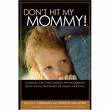Post Traumatic Stress Gene ID'd
Lindsey Tanner, Associated Press
The Gene Factor March 18, 2008 -- Cutting-edge new research helps answer the puzzling question of why post-traumatic stress doesn't happen to everyone who endures horrible trauma.
In this case, the trauma was child abuse. The researchers found that survivors of child abuse were particularly likely to have symptoms of post-traumatic stress as adults if they also had specific variations in a stress-related gene.
Among adult survivors of severe child abuse, those with the specific gene variations scored more than twice as high (31) on a scale of post-traumatic stress, compared with those without the variations (13).
The worse the abuse, the stronger the risk in people with those gene variations.
The study of 900 adults is among the first to show that genes can be influenced by outside, nongenetic factors to trigger signs of post-traumatic stress disorder, or PTSD.
"The study is groundbreaking," the largest of just two reports to show molecular evidence of a gene-environment influence on PTSD, said Karestan Koenen, a Harvard psychologist doing similar research. She wasn't involved in the new study.
"We have known for over a decade, from twin studies, that genetic factors play a role in vulnerability to developing PTSD, but have had little success in identifying specific genetic variants that increase risk of the disorder," Koenen said.
The results suggest that there are critical periods in childhood when the brain is vulnerable "to outside influences that can shape the developing stress-response system," said Emory University researcher and study co-author Dr. Kerry Ressler.
The study appears in Wednesday's Journal of the American Medical Association.
Ressler noted that there are likely many other gene variants that contribute to risks for PTSD, and others may be more strongly linked to the disorder than the ones the researchers focused on.
Still, he and outside experts said the study is important and that similar advances could lead to tests that will help identify who's most at risk. Treatments including psychotherapy and psychiatric drugs could be targeted to those people, Ressler said,
Several study authors, including Ressler, reported having financial ties to makers of psychiatric drugs.
About a quarter of a million Americans will develop PTSD at some point in their lives after being victimized or witnessing violence or other traumatic events. Rates are much higher in war veterans and people living in high-crime areas.
Symptoms can develop long after the event and usually include recurrent terrifying recollections of the trauma. Sufferers typically avoid situations and people who trigger the memories and often have debilitating anxiety, irritability, insomnia and other signs of stress.
Though preliminary, the study provides needed insight into a condition expected to hit rising numbers of veterans returning from Afghanistan and Iraq, said Dr. Thomas Insel, director of the National Institute of Mental Health. The agency paid for the study.
Insel said the results help explain why two people in the same jeep see a roadside bomb, and one simply experiences it as "a bad day but goes back and is able to function," while the other later develops paralyzing stress symptoms.
Read more here
Topics List: Spring 2008
- VIOLENCE, TRAUMA AND SOCIAL WELFARE COLLOQUIUM
- Week 1: Introduction and Self-Care
- Week 2: Historical and Theoretical Perspectives
- Week 3: Biopsychosocial Impact of Trauma
- Week 4: Violence Against Women
- Week 5: Religion, Race, Ethnicity, and Violence
- Week 6: Etiologies of Violence; Perpetrators of Intimate Partner Violence
- Week 7: Child Sexual Abuse; Suicide and Self-Harm
- Week 8: War, Crimes Against Humanity, and Genocide
- Week 9: Poverty and Violence in Oakland & Bayview-Hunter's Point
- Week 10: Rape as a Weapon of War; Violence Against LGBT people
- Week 11: Interventions for Trauma (with Greg Merrill)
- Week 12: Child-Parent Psychotherapy
- Week 13: Truth & Reconciliation in the Aftermath of Violence (with David Androff)
- Week 14: Violence, Trauma and Social Work (student presentations)
Wednesday, March 19, 2008
Post Traumatic Stress Gene ID'd, article from Discovery Health News
Labels:
biopsychosocial,
childhood trauma,
diathesis-stress,
genetics,
PTSD
Subscribe to:
Post Comments (Atom)
Who Are You? (check all that apply)
How did you find this blog?
Links to Browse & Buy Books
Trauma and Recovery

by Judith Lewis Herman
Don't Hit My Mommy

by Alicia Lieberman and Patricia Van Horn
Violence: A National Epidemic

by James Gilligan
Ayaan Hirsi Ali
- Submission Part 1 (a short film in which the words of the Koran are written on women's bodies as they speak their stories of violence and trauma)
- "Infidel" (her autobiography of growing up a refugee and becoming a member of the Dutch Parliament)
- "The Caged Virgin" (her essays about women and Islam)
- Ayaan's Personal Web Page
- Wikipedia (good summary of her life, philosophy, and work)
Submission
Ayaan Hirsi Ali

from the cover of "Infidel"






No comments:
Post a Comment